#COP24
Explore tagged Tumblr posts
Text
https://www.reuters.com/sustainability/issb-seeks-harmonise-disclosures-corporate-climate-transition-plans-2024-06-24/
0 notes
Text
What You Need to Know About COP28 & Upcoming COP31 with India?
COP28 is an important event where world leaders will discuss how to tackle the global climate crisis. COP28 stands for Conference of the Parties, and it is the 28th annual meeting of the countries that signed the United Nations Framework Convention on Climate Change (UNFCCC) in 1992. The Event will take place in Dubai, in the United Arab Emirates (UAE), from 30 November to 12 December 2023. Some…
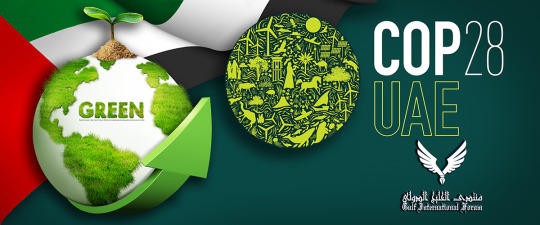
View On WordPress
#1992#2020#2023#2040#AGREEMENT#arab#billions#china#clean#conference of the parties#cop23#cop24#COP28#COP31#dialogue#Dr. Sultan Al Jaber#Dubai#Emirated#energy#GDP#GLOBAL#India#IRENA#ldcs#modi#Narendra#ndc#PARIS#renewable#sea level
0 notes
Text
COP29 Climate Talks Focus on Financing
Negotiators agree that trillions are needed to help lower-income countries adapt and cope, but not on who should pay. source https://www.nytimes.com/2024/11/13/climate/cop24-climate-finance.html
0 notes
Text
It Looks Like Open-mindedness, Joy and Community
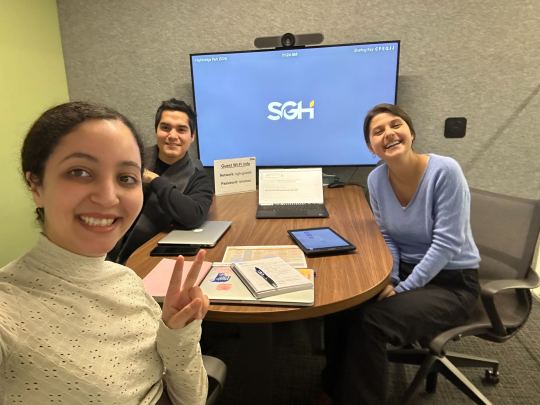
Day 2 - Intercultural competence focuses on the ability to work with individuals coming from various backgrounds and skills, ranging from active listening to efficient communication and curiosity. At SGH, there is a range of competencies from structural engineers to architects and designers, and the beauty in the work is that everyone works on different projects, often asking other members for guidance and thoughtful inquiry. The team has been so welcoming and open-minded, they've led us through their daily activities such as recording spectral curves of solar radiation information going through different types of glass (led by Simone, she's incredible!!)

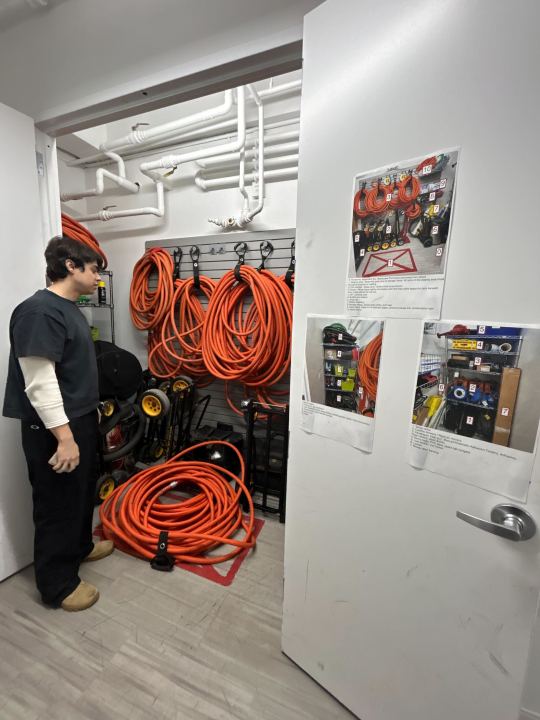
We've also had the opportunity to learn about structural analysis by having safety training and laboratory material office tours! With AJ, we've learned more about what project supervisors look for in site analysis, especially if there's manufacturing pieces that have been altered. These need to be taken back to both the contractor and the manufacturer if there's added documentation needed to see how altering the material affects its performance. The work done here at SGH is nothing short of extraordinary!
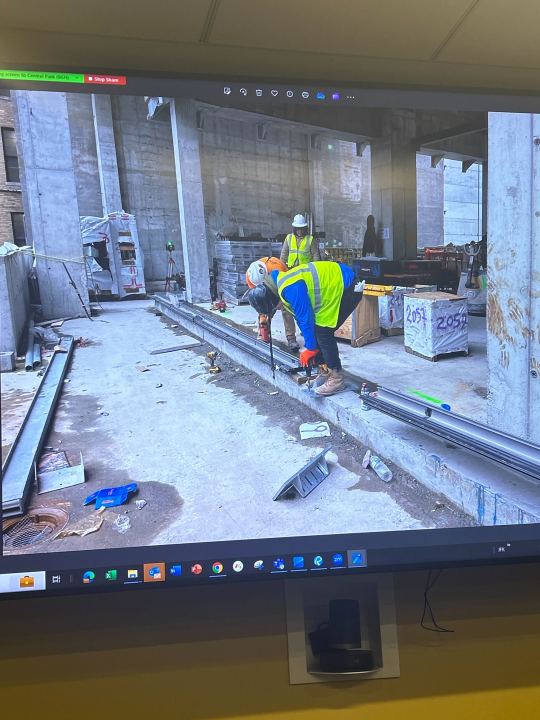
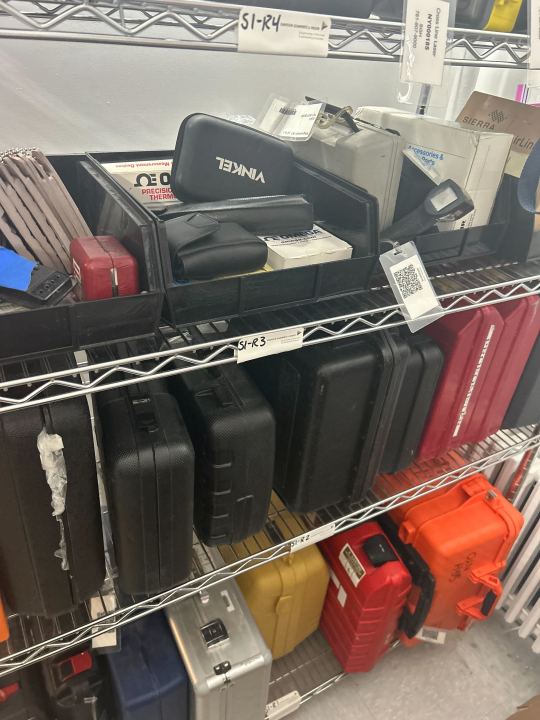
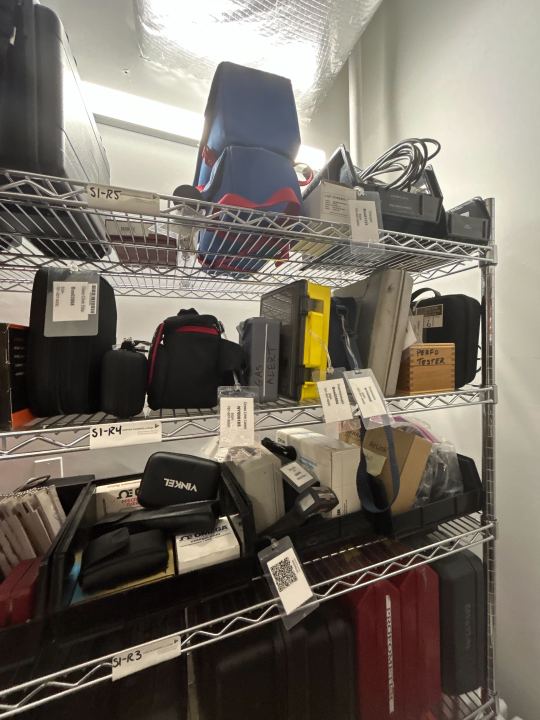
At the end of the day, I went to an AIA meeting to learn more about energy-efficient materials, and green cities! The meeting had two presentations, one on COP24, where they found a shift in the dialogue from pure building to infrastructure and landscape, and a focus towards materials that have low-carbon emission! Another talk was on the Evergreen Charter School as they needed to remodel the school, and their design maximized decarbonization. It also had timber trusses and shading devices for lowering the glare of the sun's reflection into the rooms!
I'm really excited for what's to come, and there is so much to learn here at SGH!
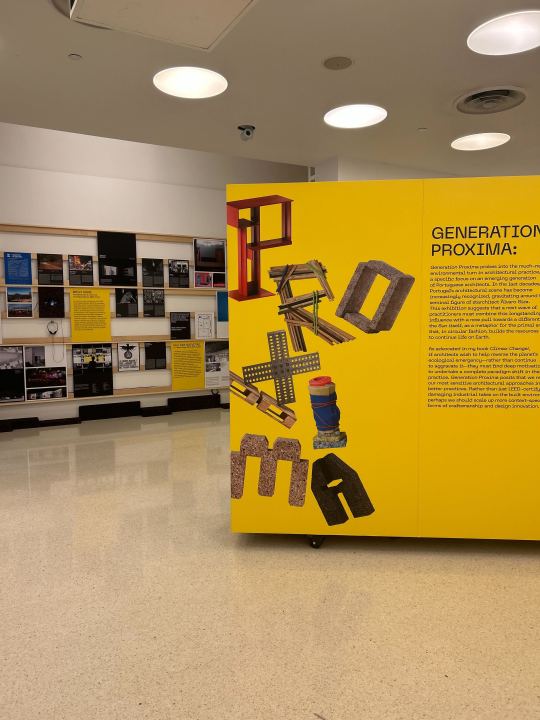
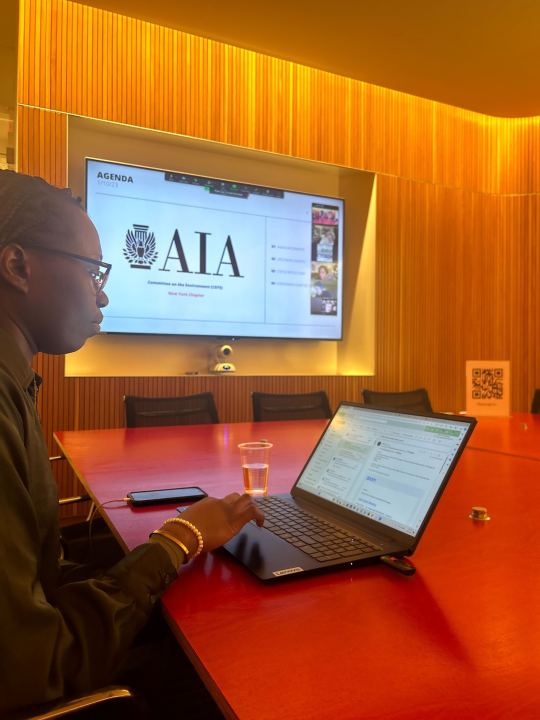
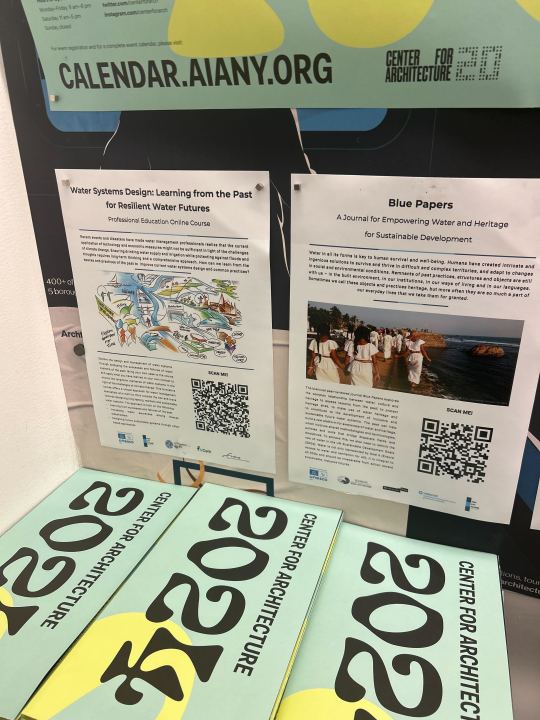
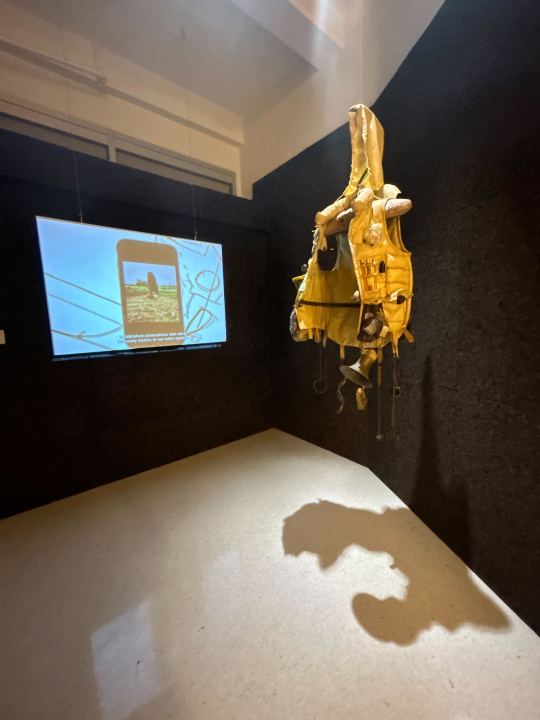
0 notes
Text
O caso desarmante para agir agora sobre as mudanças climáticas
Thunberg falou em comícios climáticos em Estocolmo, Helsinque, Bruxelas e Londres. Em dezembro de 2018, ela participou da COP24 das Nações Unidas em Katowice, na Polônia, onde discursou ao secretário-geral e fez um discurso em plenário que viralizou e foi
Greta Thunberg Em agosto de 2018, Greta Thunberg iniciou uma greve escolar pelo clima em frente ao Parlamento sueco que desde então se espalhou por todo o mundo e agora envolve mais de 100.000 crianças em idade escolar. O movimento agora se chama Fridays For Future. Thunberg falou em comícios climáticos em Estocolmo, Helsinque, Bruxelas e Londres. Em dezembro de 2018, ela participou da COP24…

View On WordPress
0 notes
Video
youtube
What is there still to negotiate?? | ClimateAdam @ COP24
0 notes
Video
youtube
You Are Stealing Our Future: Greta Thunberg, 15, Condemns the World’s Inaction on Climate Change
1K notes
·
View notes
Link
The Canadian government is under intense pressure to fill a leadership void as countries try to hammer out how they will hold themselves accountable for implementing the Paris climate-change accord.
Political leaders from most countries are in the small, coal-mining city of Katowice in southern Poland for the 24th meeting of the United Nations "Conference of the Parties," where the "rule book" for the Paris agreement is supposed to be finalized.
With the United States preparing to leave the Paris agreement altogether, the host country less than enthusiastic about it, and the biggest European powers distracted by domestic events like the Brexit crisis and riots against a fuel tax in France, Canada is being pushed to lead where they can't or won't.
The rules decided at Katowice are to dictate everything from how carbon markets work to what each country must do to report on their own emissions cuts and how they've helped finance the decarbonization of the developing world.
There is also a push for them to agree to make deeper emissions cuts, after the UN's Intergovernmental Panel on Climate Change reported earlier this fall that global targets must be substantially higher if the world has any hope of slowing catastrophic global warming.
Catherine Abreu, executive director of the Climate Action Network Canada, said at the moment the only developed country really fighting for tougher cuts to emissions is New Zealand.
"They need help," she said.
Continue Reading.
137 notes
·
View notes
Link
This girl is a hero.
Thunberg explained that while the world consumes an estimated 100 million barrels of oil each day, "there are no politics to change that. There are no politics to keep that oil in the ground. So we can no longer save the world by playing by the rules, because the rules have to be changed."
"So we have not come here to beg the world leaders to care for our future," she declared. "They have ignored us in the past and they will ignore us again. We have come here to let them know that change is coming whether they like it or not. The people will rise to the challenge."
58 notes
·
View notes
Link
#greta thunberg#cop24#climate change#world leaders#global warming#environment#environmental movement#environmental#environmentalism#sustainable#sustainability
13 notes
·
View notes
Video
youtube
"Vous n'êtes pas assez matures" Voilà les mots prononcés par Greta Thunberg, jeune suédoise de 15 ans, lors de son discours à la COP24.
24 notes
·
View notes
Photo
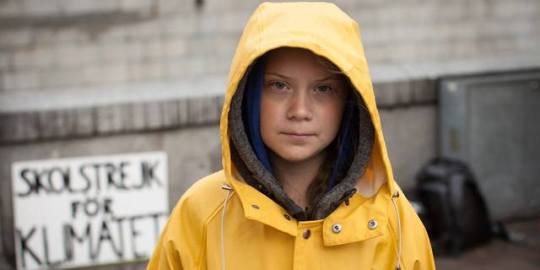
Greta Thunberg al mondo, lettera aperta 13 Febbraio 2019 Dato che continuano le voci, le bugie e le continue deviazioni da fatti ben stabiliti, vi prego di condividere questo chiarimento appena aggiornato su di me e sul mio sciopero scolastico. Per favore, aiutatemi a comunicare tutto questo agli adulti che mentono su di me e la mia famiglia, in modo che invece io possa concentrarmi sulla scuola. Recentemente, ho visto molte voci che circolano su di me e enormi quantità di odio. Questa per me non è una sorpresa. So che, dato che la maggior parte delle persone non è a conoscenza del pieno significato della crisi climatica (il che è comprensibile visto che non è mai stata trattata come una crisi), in generale, uno sciopero scolastico per il clima può sembrare molto strano alle persone. Quindi fatemi chiarire un po’ di cose sul mio sciopero scolastico. Nel maggio 2018 sono stata una delle vincitrici di un concorso di scrittura sull’ambiente bandito da Svenska Dagbladet, un giornale svedese. Ha fatto pubblicare il mio articolo e alcune persone mi hanno contattato, tra gli altri c’era Bo Thorén di Fossil Free Dalsland. Aveva una specie di gruppo con delle persone, soprattutto giovani, che voleva fare qualcosa per la crisi climatica. Ho fatto qualche meeting telefonico con altri attivisti. Lo scopo era quello di presentare idee di nuovi progetti che avrebbero portato all’attenzione la crisi climatica. Bo aveva qualche idea sulle cose che potevamo fare. Di tutto, dalle marce ad un’idea soft di una sorta di sciopero scolastico (con i bambini delle scuole avrebbero dovuto qualcosa nelle scuole o nelle aule). Quell’idea era stata ispirata dagli studenti di Parkland, che si erano rifiutati di andare a scuola dopo le sparatorie a scuola. L’idea di uno sciopero scolastico mi è piaciuta. Così ho sviluppato quell’idea e ho cercato di far sì che gli altri giovani si unissero a me, ma nessuno era veramente interessato. Pensavano che una versione svedese della marcia Zero Hour avrebbe avuto un impatto più grande. Così ho pianificato lo sciopero scolastico tutto da sola e dopo questo non ho partecipato a nessun altro meeting. Quando ho detto ai miei genitori dei miei piani non ne erano molto contenti. Non hanno sostenuto l’idea di uno sciopero scolastico e hanno detto che se lo avessi fatto avrei dovuto farlo completamente da sola e senza alcun sostegno da parte loro. Il 20 di agosto mi sono seduta fuori dal Parlamento svedese. Ho consegnato volantini con una lunga lista di fatti sulla crisi climatica e le spiegazioni sul perché ero in sciopero. La prima cosa che ho fatto è stata pubblicare su Twitter e Instagram quello che stavo facendo e presto è diventato virale. Poi sono cominciati a venire i giornalisti e i giornali. Un imprenditore e uomo d’affari svedese attivo nel movimento climatico, Ingmar Rentzhog, è stato tra i primi a venire. Ha parlato con me e ha fatto le foto che ha pubblicato su Facebook. E’ stata la prima volta che mi fossi mai incontrata o avessi parlato con lui. Prima di allora non ci avevo mai parlato o lo avevo incontrato. A molte persone piace diffondere voci che dicono che ho della gente “dietro di me” o che sono “pagata” o “usata” per fare quello che sto facendo. Ma non c’è nessuno “dietro” di me tranne che me stessa. Prima che avessi fatto conoscere loro la situazione, i miei genitori erano quanto di più lontano possibile da degli attivisti climatici. Io non faccio parte di nessuna organizzazione. A volte sostengo e collaboro con diverse ONG che lavorano con il clima e l’ambiente. Ma sono assolutamente indipendente e rappresento solo me stessa. E faccio quello che faccio completamente gratis, non ho ricevuto nessun soldo o nessuna promessa di pagamenti futuri sotto nessuna forma. E nessuno è legato a me o alla mia famiglia, è così. E’ certo che sarà così. Non ho incontrato un solo attivista climatico che sta lottando per il clima per i soldi. Quell’idea è del tutto assurda. Inoltre, viaggio solo con il permesso della mia scuola e i miei genitori pagano i biglietti e i miei soggiorni. La mia famiglia ha scritto insieme un libro sulla nostra famiglia e su come io e mia sorella Beata abbiamo influenzato il modo di pensare e di vedere il mondo dei miei genitori, soprattutto quando si tratta del clima. E sulle nostre diagnosi. Quel libro doveva essere pubblicato a maggio. Ma visto che c’è stato un grosso disaccordo con la casa editrice, abbiamo finito per cambiare con un nuovo editore e quindi il libro è stato invece pubblicato ad agosto. Prima che il libro venisse pubblicato, i miei genitori hanno chiarito che i loro possibili profitti provenienti dal libro “Scener ur hjärtat” andranno a 8 diverse ONG che lavorano con ambiente, bambini con malattie e diritti degli animali. E si, scrivo da sola i miei discorsi. Ma visto che so che quello che dico raggiungerà molti, chiedo spesso degli input a molte persone. Ho anche alcuni scienziati ai quali spesso chiedo aiuto su come esprimere certe questioni complicate. Voglio che tutto sia assolutamente corretto, in modo da non diffondere fatti scorretti, o cose che possono essere fraintese. C’ è chi mi prende in giro per la mia sindrome. Ma l’Asperger non è una malattia, è un dono. La gente dice anche che, dato che ho l’Asperger non avrei mai dovuto mettermi in questa situazione. Ma è proprio per questo che l’ho fatto. Perché se fossi stata “normale” e social mi sarei organizzata con un’organizzazione, o avrei fondato io stessa un’organizzazione. Ma visto che non sono così brava a socializzare, invece ho fatto questo. Ero così frustrata che non si stesse facendo nulla per la crisi climatica e mi sembrava di dover fare qualcosa, qualsiasi cosa. E a volte non fare le cose – come stare solo seduti fuori dal Parlamento – parla molto più forte che fare le cose. Proprio come un sussurro a volte è più forte che urlare. Inoltre, c’è un’altra accusa: che io “parlo e scrivo come un adulto”. E a questo posso solo rispondere: non credete che una ragazzina di 16 anni possa parlare per conto suo? Ci sono anche alcune persone che dicono che io semplifico le cose. Ad esempio quando dico che ” la crisi climatica è una questione in bianco e nero”, ” dobbiamo fermare le emissioni di gas serra ” e ” voglio che tu ti faccia prendere dal panico”. Ma lo dico solo perché è vero. Sì, la crisi climatica è la questione più complessa che abbiamo mai affrontato e che richiederà da noi tutto per poterla “fermare”. ma la soluzione è bianca o nera: dobbiamo fermare le emissioni dei gas serra. Perché o si limita il riscaldamento a 1,5 gradi C sopra i livelli preindustriali, o non lo facciamo. O si raggiunge un punto di non ritorno in cui inizia una reazione a catena, con eventi ben oltre il controllo umano, o non lo facciamo. O andiamo avanti come civiltà, o non lo facciamo. Non ci sono zone grigie quando si tratta di sopravvivenza. E quando dico che ti voglio nel panico voglio dire che dobbiamo trattare la crisi come una crisi. Quando la tua casa è in fiamme non ti siedi e parli di quanto sarà bello puoi ricostruirla, una volta che avrai spento l’incendio. Se la tua casa è in fiamme, corri fuori e ti assicuri che tutti siano usciti mentre tu chiami i vigili del fuoco. Il che richiede un certo livello di panico. C’è un’altra argomentazione per la quale non posso fare nulla. Ed è il fatto che sono “solo una bambina e non dovremmo stare ad ascoltare i bambini”. Ma questo è facile da risolvere: basta invece iniziare ad ascoltare la scienza solida come la roccia. Perché, se tutti avessero ascoltato gli scienziati e i fatti a cui mi riferisco costantemente, allora nessuno dovrebbe ascoltare me o nessuna delle altre centinaia di migliaia di studenti in sciopero per il clima in tutto il mondo. Poi potremmo tornare tutti a scuola. Io sono solo una messaggera, eppure mi arriva addosso tutto questo odio. Non dico nulla di nuovo, dico solo quello che gli scienziati hanno ripetutamente detto da decenni. E sono d’accordo con voi, sono troppo giovane per farlo. Noi bambini non dovremmo farlo. Ma visto che quasi nessuno sta facendo niente, e molto del nostro futuro è a rischio, ci sembra giusto dover continuare. E se avete qualche altra preoccupazione o dubbio su di me, allora potete ascoltare i miei TED talk, nei quali parlo di come è iniziato il mio interesse per il clima e l’ambiente. E grazie a tutti per il vostro gentile supporto! Mi porta speranza. Greta Ps sono stata brevemente una youth advisor del Consiglio della Fondazione no profit “We don’t have time”. Ho scoperto che hanno usato il mio nome come parte di un’altra branca della loro organizzazione che è una start up business. Hanno ammesso chiaramente che lo hanno fatto senza che io o la mia famiglia ne fossimo a conoscenza. Né io né qualcuno della mia famiglia abbiamo più nessun rapporto con “We don’t have time”. Si sono profondamente scusati per quello che è successo e ho accettato le loro scuse. Pubblichiamo la lettera aperta postata sulla sua pagina Facebook da Greta Thunberg, la giovanissima attivista svedese che ha iniziato da sola uno sciopero scolastico per il clima che si è presto diffuso tra i ragazzi/e di tutto il mondo e che è diventata ancora più famosa dopo i suoi decisi interventi alla Cop24 Unfccc di Cracovia e al World economic forum di Davos.
2 notes
·
View notes
Text
Brunatniejące państwo policyjne
Wczoraj w Katowicach odbyła się skromna demonstracja na rzecz przeciwdziałania zmianom klimatycznym. Z tej okazji państwo polskie wpadło w histeryczny szał. Na kilka tygodni przed wydarzeniem, aktywistów i aktywistki nachodzono w domach, przepytywano ich rodziny, pod domami rozstawiano radiowozy, niby przypadkowo legitymowano na mieście. W dniu demonstracji policja zatrzymywała autokary do drobiazgowej kontroli, spisywano kogo się da, do obcokrajowców wezwano Straż Graniczną (sic!), części aktywistów zagranicznych nie wpuszczono do Polski - swoją drogą to ciekawe, że osoby działające na rzecz środowiska są traktowane niemal jak zagrożenie terrorystyczne, ale policja nie kwapi się już do zatrzymywania zorganizowanych i nieraz uzbrojonych band, zmierzających na imprezy w stylu marsz niepodległości. Priorytety. Już na miejscu, uczestników protestu potraktowano prawie jak wrogą armię - został on szczelnie obstawiony uzbrojonymi po zęby policjantami, setkami tajniaków, armatkami wodnymi, oddziałami konnymi. Policja zachowywała się tak, jakby za wszelką cenę próbowała sprowokować zamieszki, aby potem reżimowe media mogły latami rozpływać się nad agresywnym lewactwem: ludzie bez powodu byli oddzielani od pochodu, przypadkowe osoby wyciągano z tłumu. Nie udało się, więc policjanci tak po prostu zatrzymali i przewieźli na komisariat trzy osoby. Żadna z nich oczywiście nic nie zrobiła, więc zostały wypuszczone. Z powodu ciągłych, policyjnych zaczepek, marsz w końcu rozwiązano.
Nie wiemy jak Wy to nazwiecie, ale dla nas to po prostu brunatniejące państwo policyjne. Państwo, które zachowuje jeszcze pozory demokratyczności, ale nie zawaha się użyć pełnego wachlarza środków przemocy, gdy tylko ktoś otwarcie zakwestionuje jego politykę. Państwo policyjne jest też zazwyczaj państwem pomieszania pojęć. Gdy ekologów potraktowano jak bandytów, przewodniczącymi paneli i kluczowymi mówcami na szczycie klimatycznym byli truciciele środowiska i zwolennicy węglowej gospodarki, pozujący - ku zażenowaniu zagranicznych gości i mediów - na największych obro��ców środowiska. Wojna to pokój, wolność to niewola, ignorancja to siła.
14 notes
·
View notes
Video
youtube
Greta Thunberg full speech at UN Climate Change COP24 Conference!
Greta Thunberg (born 3 January 2003) is a Swedish climate activist. She is known for striking outside the Swedish parliament building to raise climate change activism.
Greta Thunberg was born on 3 January 2003. Her mother is Malena Ernman, a Swedish opera singer. Greta's father is Svante Thunberg is an actor named after Svante Arrhenius.
Arrhenius is an ancestor of her father, and won a Nobel Prize in Chemistry for calculating the effects of greenhouse gases in the atmosphere.
#climate change#activism#nobel prize#greta thunberg#un#cop24#humanity#sweden#olof thunberg#malena thunberg#svante thunberg#children's rights#earth#greenhouse#climatestrike#fridayforfuture
12 notes
·
View notes
Text
David Attenborough and the Collapse of Civilization

The Global Climate UN – COP24 in Katowice
On 03 December 2018 Sir David Attenborough made some brief remarks at COP24 in Katowice, Poland, which was the 24th Conference of the Parties to the United Nations Framework Convention on Climate Change. The remarks—a transcript of the full text of the speech is available—were apocalyptic and widely quoted in the press. At a couple of points in the speech Attenborough asserted that the future of civilization is at stake. Here is the first mention of civilization:
“Right now, we are facing a man-made disaster of global scale. Our greatest threat in thousands of years. Climate Change. If we don’t take action the collapse of our civilisations and the extinction of much of the natural world is on the horizon.”
...and he finished with another remark about civilization:
“The continuation of our civilisations and the natural world upon which we depend, is in your hands.”
Whether or not one agrees with Attenborough that civilization is at stake in climate change negotiations, it is another question entirely as to whether meetings like this can accomplish anything other than hand-wringing. The COP24 meeting did conclude with an “agreement” (cf. Climate change: COP24 deal to bring Paris pact to life by Matt McGrath), but I hope that none of my readers is so naïve as to believe that this is going to have any impact whatsoever on the climate of our homeworld.
This is not cynicism, it is geopolitical realism, because the reality of the situation is that, without enforcement provisions, the agreement is toothless and can be violated at any time without consequence. And no body of negotiators at the level of those present at COP24 would be empowered by their nation-states to concede any national sovereignty in order to make it possible for an international body to punish it for violations of the agreement.
What Effective Action on Climate Change Would Look Like
It is not difficult to imagine what a meeting might look like, or what an agreement might look like, if it were taken seriously. Individuals who wield real political power would be present. They would come prepared to cut deals. There would be intense negotiation over consequences of any violations, which would be severe, or nothing would happen. For example, suppose an agreement were struck on climate change matters, and if a nation-state violated this agreement, the head of state would be sentenced to a public flogging, and then this flogging were actually carried out. That would get the attention of presidents, prime ministers, kings, and queens.
Now, you will think that I am being facetious about a serious matter and therefore mocking the process. While I am mocking the process, because it is ineffectual, I am not being facetious. It would take measures of this degree of severity to get any agreement on something so closely tied to economic growth and development. There would have to be individuals in power with skin in the game. One of the unrecognized and unacknowledged problems of democracy is that the revolving door of power means that leaders have little or no skin in the game. If they fail, they usually go into comfortable retirement. They are rarely if ever made to bear the consequences of their actions. If this does not change, nothing else will fundamentally change. And certainly the human impact on the biosphere is not going to change without fundamental, if not radical, change.
Climatological and Civilizational Scales of Time
On the one hand, it has become very difficult to talk about climate change scientifically because the discourse around climate science has become so politicized. On the other hand, despite the highly politicized nature of the debate, very little effective political action has occurred, so there is a feeling on the part of those concerned about climate change that the stakes must be raised so that people will pay attention. Thus the escalation of rhetoric intended to capture public attention reaches the level of claims that climate change will mean the end of civilization unless we take action now.
There are many problems with this, of course. Climate change does happen, and has happened throughout the history of our homeworld, but it happens over a climatological scale of time, just as geological change happens over a geological scale of time. Civilization, notably, does not change according to either a climatological or geological time scale, but according to the (much briefer) time scale of human history. The difference between these scales of time leads to a lot of confusion, and a failure to understand what is at stake, and what can be done about it. For example, the scope of action of geology, climatology, and history are radically different.
For more than two hundred years, since human beings have been burning an increasing quantity of fossil fuels, we have been increasing the carbon in Earth’s atmosphere. Humanity has acted over two hundred years, but we only perceive our agency in the moment. Acting in the moment is not going to address the actions of two hundred years. The genie is out of the bottle and can’t be put back in again. Global warming is a done deal, and it was a done deal before we realized what was going on. The carbon capture and storage technologies now being debated, and sometimes also being designed and built, are not about capturing all the carbon released into the atmosphere over the past two hundred years, but only about capturing newly produced carbon from fossil fuel pollution sources, so that the problem doesn’t get worse. But the problem is already a problem, and even if we were to stop all human activities that released carbon into the atmosphere now—and the only way to do this would be to end civilization—that wouldn’t do anything about the carbon already released into the atmosphere.
Now, the biosphere, closely coupled with the atmosphere, oceans (hydrosphere), and the land (geosphere), is a complex adaptive system. One change—such as more carbon in the atmosphere—cannot be isolated from other parts of the Earth system. Increased carbon could be offset in a number of ways. It is possible, though not likely, if human beings went extinct tomorrow, that the Earth system would right itself and not enter into a period of extended warmer temperatures. This is not likely to occur (even in the event of the unlikely counterfactual of human civilization abruptly disappearing) because every time in the past when carbon has reached levels commensurate with present levels, the climate warmed up from the greenhouse effect. (Peter Brannen goes into this in his book The Ends of the World.)
But what would it mean for the climate to right itself of its own accord? We are, or, at least, we were, in a period of unusually cold temperatures in Earth history. We today live in an ice age—the Quaternary glaciation. The Quaternary glaciation has been characterized by long periods of lower sea levels with a lot of water tied up in glaciers covering most of the northern hemisphere. Civilization began in the Holocene warming period, a part of the Quaternary glaciation, which latter is occasionally subject to warming. These warming periods usually last for about ten thousand years or so, then the temperature decreases and the ice caps begin to grow again. If we were to return Earth to its status quo ante, we would return to the onset of a severe ice age.
If human civilization had not made the breakthrough to industrialization and high technology, the entire planet would, within a thousand or so years, return to an ice age probably as severe as the last glacial maximum. This would not likely cause human beings to go extinct—after all, our ancestors settled the entire planet during the last glacial maximum, thanks to canoes and bone needles that allowed for sewing form-fitting clothing—but it could well cause the end of civilization, and it would certainly cause the end of civilization as we know it today. (Cf. my post A Thought Experiment on Civilizations that Succumb to Snowball and Slushball Events.)
The Earth has been through It Before
This isn’t the first time in Earth history that massive amounts of carbon have been injected into the atmosphere in a short period of time. There have been times in the past when volcanoes have erupted through beds of coal, which is the same as burning these beds of coal very rapidly. In previous episodes of climate change due to the injection of greenhouse gases in the atmosphere, however, we weren’t here to experience it, and there was no civilization on Earth to be subjected to a global catastrophic risk.
There is, then, a certain kind of anthropocentrism in climate change alarmism, because it treats the present climate and its likely trajectory as though it were unique, special, and exceptional, whereas it only appears unique, special, and exceptional to us because we are part of the process. And we are right to be concerned about ourselves and the civilization we have built—these things have intrinsic value and are worth saving, but they are not the only things on Earth with intrinsic value. We need to learn to see ourselves and our civilization in a larger context that both recognizes their intrinsic value and makes a cold, clear-eyed, analytical assessment of the prospects for its survival, along with the survival of other forms of intrinsic value on Earth.
David Attenborough said that, if we don’t act upon climate change, civilization may collapse, and that is true—civilization may collapse. Also, it may not. However, if we were to voluntarily bring civilization to an abrupt end in an attempt to “save” the climate by shutting down our emissions, then civilization would also, by definition, be doomed, only by a different process. If our civilization had taken a different trajectory of development, had not industrialized, had not injected greenhouse gases into the atmosphere, and was instead facing the development of the climate without the technological resources provided by an industrialized civilization, civilization would also be doomed—but, again, by a different process (doomed by another ice age, rather than being doomed by another greenhouse).
Civilization is a very recent emergent complexity on Earth, and we do not know whether it can survive over the longue durée on a geologically active planet, which will, over geological time, mean the ruin of any structures built by human beings. That civilization must face climate change is only the most imminent expression of what it means to live on a geologically active planet, since the climate is a function of natural processes integrated with all the other natural processes that make our homeworld what it is. If civilization manages to survive in something like its current form, it will face further global catastrophic risks and existential risks.
Making Provisions for the Future
If the reader suspects that I am pessimistic about the future of humanity and civilization, and that I am seeking to “black pill” my readers with the inevitability of our doom, nothing could be further from the truth. The hopeful message is that there is a straight-up choice between accepting the ruin of all that human beings have created, and actually making some kind of provisions for the continuity of humanity and civilization. I believe that most human beings will choose the latter, though I should also add that I don’t think they will choose the latter until they well and truly have their backs to the wall. Our back is not yet to the wall.
And by, “making some kind of provisions for the continuity of humanity and civilization,” I don’t mean pointless window-dressing meetings of UN functionaries; I mean dealing with the hard problems, like what will be done when large nation-states collapse in the face of massive flows of refugees, what kind of triage will be put in place to save what can be saved of humanity’s heritage and its technological capacities, and how to plan for real horrors that will result in the deaths of millions, tens of millions, and hundreds of millions. This is not pleasant matter for conversation, but it is necessary in order to face what is coming without illusions, without rose-colored glasses, and without sentimentality.
The geopolitics of climate change has yet to manifest itself in a meaningful way. However, industrialized civilization has given us the technological means by which we can, if we so choose, when the geopolitics of climate change does manifest itself, take action to mitigate the worst consequences. Eventually, we can and will take effective action, thanks to civilization. Trying to turn the clock back on civilization will only mean hastening its doom. We need to push ahead.

#climate change#COP24#David Attenborough#geopolitics#global catastrophic risk#existential risk#longue durée
11 notes
·
View notes
Audio
(Cliff Crego)
1 note
·
View note